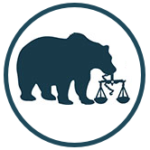|
Listen to this Article
|
“Don’t let anybody tell you what to do, be who you want to be.”
–Marsha P. Johnson
The Stonewall Uprising
In the late 1960s it was still illegal to be gay in most states. There was not a single law protecting gay people from discrimination. There were no openly gay politicians or pop culture celebrities.
In Greenwich Village, New York, on Christopher Street at a private club called the Stonewall Inn, patrons included homeless LGBTQ teens, trans women of color, lesbians, drag queens, and gay men. Gay clubs such as the Stonewall Inn were the targets of police raids. It was illegal to serve alcoholic beverages in disorderly environments and having a group of gay patrons was considered “disorderly.” Although the Stonewall Inn regularly paid off the police, undercover officers attempted a raid on the club in the early morning hours of June 28, 1969. Things did not go to plan—punches were thrown, hundreds of bystanders joined in, and a riot ensued ending in 13 arrests. People gathered in the neighborhood for the next five consecutive nights. Widespread media coverage of the Stonewall uprising, as it came to be known, lead to commemorative events in other cities. Originally called Christopher Street Liberation Day, we now celebrate the commemoration of the June 1969 events at the Stonewall Inn by waving the rainbow flag of LGBTQ+ Pride.
One of the rioters was activist and self-identified drag queen Marsha P. Johnson.
In an interview with Eric Marcus, Johnson said, “We were…throwing over cars and screaming in the middle of the street ‘cause we were so upset ‘cause they closed that place…. We were just saying, ‘no more police brutality’ and ‘we had enough of police harassment in the Village and other places.’”
Johnson and Andy Warhol
Marsha P. Johnson is remembered as one of the most significant activists for transgender rights—although the term “transgender” was not commonly used during her lifetime. Johnson identified as “transvestite, gay and a drag queen,” using she/her pronouns. She had a flamboyant sense of style and a larger-than-life personality and was immortalized in Andy Warhol’s 1975 Polaroids portfolio “Ladies and Gentlemen.” Johnson mostly sourced her wardrobe from discard bins and often sported bright red heels, stacked costume jewelry, colorful wigs festooned with artificial fruit and sequined dresses. In a 1992 interview, Johnson said, “I was no one, nobody, from Nowheresville, until I became a drag queen.”
Street Transvestite Action Revolutionaries
Johnson was black, poor, and gender non-conforming. She knew what it was like to be marginalized. Along with good friend Sylvia Rivera, a Latina gay liberation and transgender rights activist, Johnson helped found the group Street Transvestite Action Revolutionaries (STAR). The organization offered to house homeless and transgender youth ostracized by their families because of their sexuality. The founders of STAR were concerned about the dangers faced by transgender people who were often forced into prostitution to support themselves. They created the first LGBT youth shelter in North America and the first organization in the United States led by trans women of color. Johnson was also an activist with the group ACT UP in its commitment to direct action to end the AIDS crisis.
The Final Chapter
Johnson struggled with mental health issues throughout her life. In 1992, following the Pride parade marking the 23rd anniversary of the Stonewall Uprising, Johnson’s body was found floating in the Hudson River. The circumstances of her death remain unclear. New York police ruled the death a suicide and did not investigate. Some of those close to Johnson considered her death suspicious. In November 2012, the NYPD reopened the case and reclassified Johnson’s death from “suicide” to undetermined.
Shortly before her passing, Johnson asked the hauntingly evocative questions that resonate in the current climate, “How many years does it take for people to see that we’re all brothers and sisters and human beings in the human race? I mean how many years does it take for people to see that we’re all in this rat race together?”
San Francisco Bay Area Discrimination Attorneys
The tragic fact is that even in the Bay Area in 2020, discrimination based on sexual orientation remains a reality. If you are a member of the LGBTQ+ community you have rights. If you think you have experienced discrimination in the workplace, reach out to us for a consultation.




